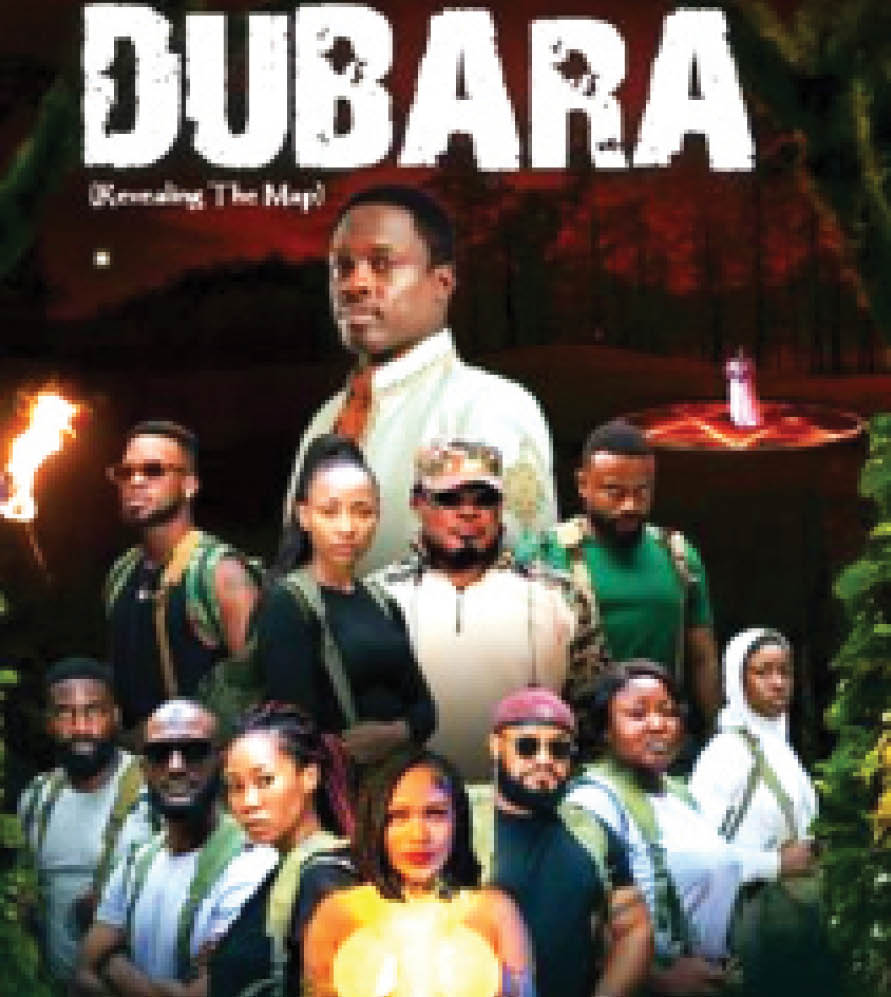‘Dubara’ and a big box of emptiness
Movie: Dubara’ Year: 2021 Director: Toka McBaror Perhaps, the best metaphor for ‘Dubara’ can be taken from the film itself. The cases where characters nonchalantly and suddenly stumble upon a box, said to have the potential of a lot, but without any sense of jeopardy or interest, and it turns out to be empty. […]

Dubara
Movie: Dubara’
Year: 2021
Director: Toka McBaror
Perhaps, the best metaphor for ‘Dubara’ can be taken from the film itself. The cases where characters nonchalantly and suddenly stumble upon a box, said to have the potential of a lot, but without any sense of jeopardy or interest, and it turns out to be empty. And it’s not exactly a compliment to say Toka McBaror’s latest directorial project in cinemas reflects that. A sort of emptiness, and a facetious and artificial attempt at unorthodoxy.
Ali Nuhu stars in Dubara, alongside Samuel Perry (Broda Shaggi), Bishop Imeh Umoh, and Blessing Obasi. Belinda Effah, Eso Dike, Saheed Mohammed (Funky Mallam), Diamond Ukechi, and Lizzy Jay also feature in this film. ‘Dubara’ teases itself as something of a quest, where characters hitherto unknown to each other seek a mythical prize.
But this is where ‘Dubara’ starts to display its flawed shallowness. There’s neither a sufficient back story into the mythical object, or the characters themselves, seeming to mistake mystery for insufficiency. Not to mention how said characters go from discovering a mysterious card to being in the jungle without any information in-between. We see no scepticism, no sense of wonder, and these characters are portrayed as, at best naïve, and at worst, laughably gullible.
It is the thorough lack of depth and conviction that really encapsulates the entirety of the movie. Characters are in the jungle, and in a supposedly dangerous quest; but there’s little sense of jeopardy. And any ounce of it is both unresolved and almost immediately diffused by a need to be comical. This is also evident with the acting, particularly with the characters played by Belinda Effah, which is shallow and artificial, and Broda Shaggi, which is just the importation of a previous stereotypical display.
Throughout ‘Dubara’, there’s no real sense of what’s what with this movie. There’s neither a clear direction over where it’s going, nor does it have enough about itself to get you interested in any journey it might take. The dialogue and diction are repetitive and hysterical, seemingly bent on being dramatic and yet funny, instead of being coherent, or at the very least, natural.
‘Dubara’ does try to step things up in the final act. The characters’ search, and the scores used, attempted to conjure up some kind of jeopardy, stimulate some tension and arouse some kind of interest. But not only was it far gone at the time, it was also being undermined by some more desperate need for comic relief, for a movie that doesn’t seem to have taken itself seriously for much of its earlier parts. But the kicker with the third act is how it’s all unresolved. Who’s the man behind the camera watching them all? What happens to Linda and Fred? Or Seyi and Ben? What did any of this even mean?
It’s a set of questions that couldn’t be answered, and speaks to a simple issue: that Dubara is as badly written a movie as it is badly directed. And if the only grace of this movie is that it’s forgettable, then that’s no grace at all.
Culled from sodaandpopcorn.com
